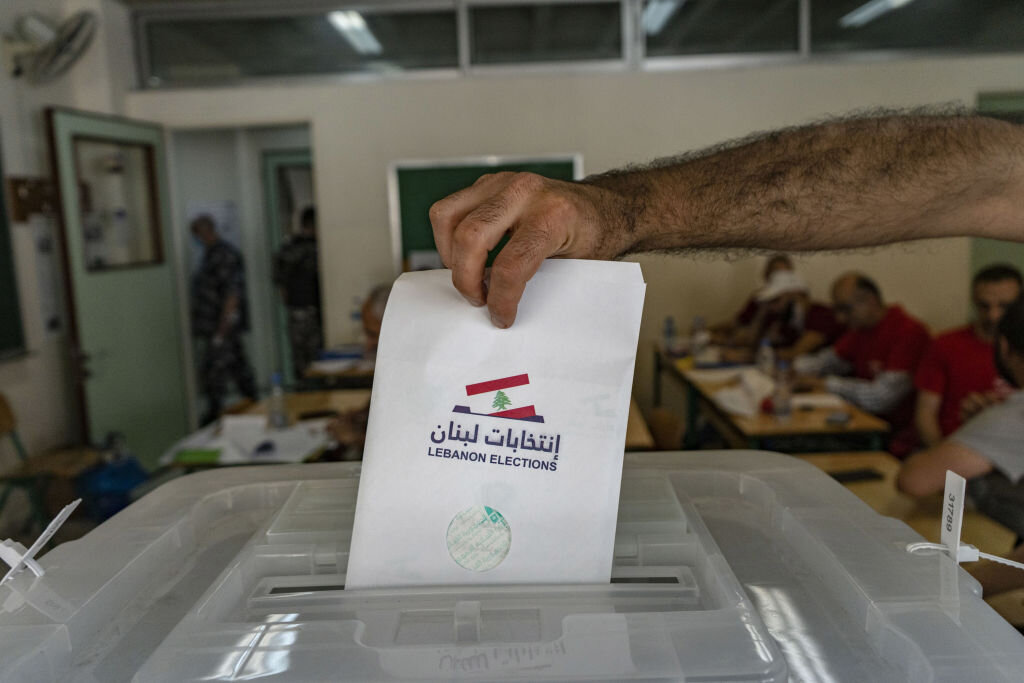Why do the Lebanese Forces want to amend electoral law?
Unfair law against Shiite diaspora

BEIRUT — The anti–Resistance team, led by the Lebanese Forces party, failed on Monday to include in the urgent, duplicate draft law aimed at allowing expatriates to vote for the entire parliamentary seats, not just six seats (allocated for non-residents across the 6 continents, under the current parliamentary electoral law).
The Lebanese Forces attempted not only to politicize the parliamentary electoral law (a year ahead of the schedule, May 2026) but also to challenge the powers of Parliament Speaker Nabih Berri in a bid to invest in what they think is a decline of the axis of resistance in region.
The Lebanese Forces are seeking to amend Electoral Law 144/2017, under which the 2018 and 2022 parliamentary elections were held, to suit their political interests. This would add six expatriate seats (distributed across six continents) to the 128 parliamentary seats, bringing the total number of representatives to 134.
However, several parliamentary blocs object the Lebanese Forces’ monopoly on expatriate votes, as the principle of equal political rights does not extend to Hezbollah and the Amal Movement voters abroad, particularly since Hezbollah is listed as a terrorist organization in several Arab and Western countries.
MPs from the Socialist Party expressed their rejection of changing the electoral law because it is “an internal targeting of a key sect,” and this is “in connection with what is being said about a peace process in the region, which requires changing the reality of Shiite parliamentary representation.”
They also warned of the risks this proposal poses to Lebanon, stating, “A change in the electoral law must meet the aspirations of the Lebanese people and improve representation, not be tied to political developments or targeting any Lebanese component.”
In the 2022 session, the expatriate vote had a significant impact on the parliamentary election results favoring the anti-Resistance nominees, while the Shiite duo’s voters withdrew in fear of losing their jobs or being harassed and harmed.
A political source representing the Lebanese diaspora in the United States commented on the Lebanese Forces’ exploitation of their votes: “If they truly care about expatriates, let them return the funds squandered and looted by the oligarchy supported by the U.S. embassy.”
The pressure from the Lebanese Forces coincides with brazen calls to disarm Hezbollah, which could exacerbate the political dispute and threaten to derail the parliamentary elections!
Ahead of the return of U.S. Special Envoy to Lebanon Tom Barrack (likely within the next two weeks), consultations between the three presidents - President of the Republic, Prime Minister, Speaker of Parliament - are focused on presenting a unified position on the U.S. proposal, coupled with a full Israeli withdrawal from the occupied territories, the release of Lebanese prisoners, and the completion of the implementation of Resolution 1701.
They also emphasize that no additional commitments should be made until Israel takes corresponding steps.
Informed sources warned that Washington will cite numerous reasons to reject this Lebanese response, possibly through an escalation of ongoing Israeli aggression, as well as terrorist operations led by the HTS-led regime forces under the pretext of securing the eastern border between Lebanon and Syria, amid talk of imminent normalization with Israel, as well as the refusal of Lebanon’s request to renew UNIFIL’s mandate next August.
Leave a Comment